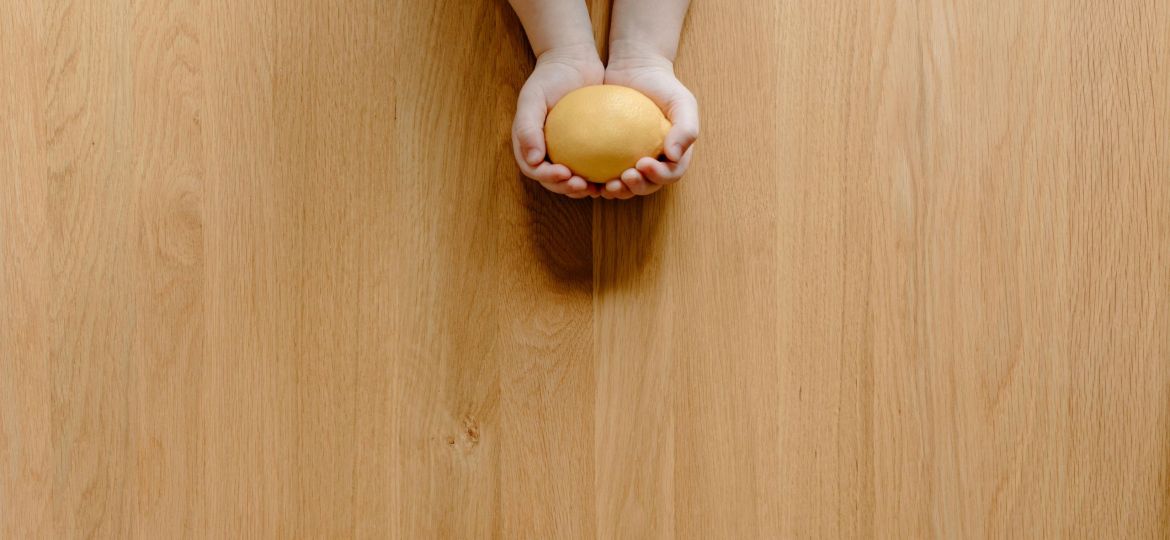
FH Summary: When it comes to raising children, most parents would agree that it can be a complex endeavor. From providing a safe and nurturing environment to ensuring they receive a quality education, parents are constantly striving to create a foundation of success for their children. And this in and of itself is not a simple task. However, what many parents may not realize is that the key to elevating their child’s development lies in the simplicity of their habits. In the intricate tapestry of child development, the concept of Occam’s Razor, often associated with simplicity and elegance in problem-solving, can be an invaluable tool for parents. At the young age of 3-13, children are like sponges, absorbing knowledge, behaviors and habits that will shape their future. As parents, it is our responsibility to ensure that the habits we instill in them serve as elevated foundations for their growth and well-being.
The Power of First Habits
First Habits, a trusted resource for parents seeking to optimize their children’s habits, emphasizes the profound impact of early habits on a child’s life. As parents, we must recognize that these habits can either set our children on an upward spiral of success or lead them down a negative one. Let’s explore how Occam’s Razor can help us navigate this complex terrain with simplicity and effectiveness and how simplifying your child’s habits can elevate their development. As Leonardo da Vinci said, “Simplicity is the ultimate sophistication.”
Occam’s Razor: The Essence of Simplicity
Occam’s Razor, a principle attributed to the 14th-century philosopher William of Ockham, suggests that among competing hypotheses, the simplest one is usually the best. It states that when presented with multiple explanations for a phenomenon, one should select the explanation that makes the fewest assumptions. Applied to parenting, it means that parents should focus on the simplest and most effective habits that will create a positive impact on their child’s life. The simpler the habit, the easier it is to develop and maintain. The First Habits brand emphasizes that these habits should be intentional and deliberate, rather than reactive, accidental or overly complex.
Research by child psychologists and experts in child development consistently supports this notion. Studies have shown that children are more likely to adopt and sustain simple, easily comprehensible habits. This is where First Habits excels, offering parents a straightforward approach to instilling positive behaviors in a simple, straightforward manner.
The Upward Spiral of Good Habits
Now, let’s delve into the concept of the upward spiral of good habits. When you introduce a positive habit into your child’s life, it sets in motion a series of beneficial events. For instance, if you encourage them to read a book before bedtime, they develop better language skills, critical thinking and a love for learning. This, in turn, improves their academic performance, self-esteem and overall well-being.
First Habits understands this domino effect and provides a curated list of foundational habits that trigger this upward spiral. These habits are meticulously selected to ensure that they foster a holistic development process for your child. By embracing these habits, you’re not only simplifying their upbringing but also paving the way for a brighter future. So it doesn’t necessarily matter what your child is reading or that they read at a very specific time each day, but just the fact that they are practicing a daily reading habit can be sufficient to launch an upward spiral of cognitive development.
The Downward Spiral of Bad Habits
On the flip side, bad or unintentional habits can lead to a negative spiral that hinders a child’s growth. Let’s take the example of excessive screen time. When a child spends too much time in front of screens, it can lead to a decline in physical activity, reduced social interactions and even developmental delays. This, in turn, can affect their academic performance and self-esteem negatively.
First Habits urges parents to be vigilant about identifying and addressing these detrimental habits early on. By adhering to Occam’s Razor, you can simplify the process of breaking these negative patterns. The key is to replace them with positive, easy-to-grasp habits that counteract the downward spiral and set your child back on the path to success.
Elevating Foundations of Childhood Development
One of the fundamental principles at the heart of First Habits is the belief that childhood development is a journey of building foundations. Just as a skyscraper requires a strong and solid foundation to reach great heights, children need elevated foundations in the form of nurturing habits to flourish.
The research-backed approach of First Habits ensures that these foundations are built on robust scientific principles. By incorporating habits that align with the stages of cognitive, emotional and physical development, you’re providing your child with the best possible start in life.
Some key habits that parents can focus on to elevate their child’s development include consistent sleep routines, healthy eating habits, regular exercise and daily reading. It’s important to note that creating these habits may not always be easy. As parents, we are often juggling multiple responsibilities and may not have the time or energy to focus on creating intentional habits. However, by simplifying our approach and focusing on the most impactful habits, we can create a foundation of success for our children. As the First Habits brand emphasizes, “Small steps, done consistently, lead to big results.”
The Occam’s Razor Approach in Action
To illustrate the power of Occam’s Razor in building first habits, let’s consider the following scenario:
Meet Emma, a 7-year-old with a passion for art. Her parents, aware of the importance of nurturing her creativity, introduce a simple habit – a weekly art night. They spend an hour each Sunday painting and drawing together as a family.
This seemingly straightforward habit sets off a chain reaction. Emma’s art night not only hones her artistic skills but also fosters family bonding and communication. As she continues to create, her confidence soars. Emma’s improved self-esteem spills over into other areas of her life, leading to better performance in school and enhanced social skills.
Another scenario: a parent is struggling to get their child to eat healthy foods. Rather than overwhelming themselves and their child with a complete overhaul of their diet, the parent can focus on one simple, repeatable meal at a time. For example, they can start by incorporating one new healthy food into their child’s diet each week. Over time, this habit will become ingrained in their child’s routine and they will be more likely to continue making healthy food choices in the future.
All of this positivity stems from the simple habit which demonstrates the beauty of Occam’s Razor in action. First Habits don’t need to be complex undertakings with many moving parts that require a months long planning process. In fact, the simpler the habit, the more easily it will be to adhere to and build upon. Start small and build along the way so that you can facilitate positive habit formation in your child. A complex habit or behavior will likely require much more effort and attention than a routine that is simple and focused. Any overly complex habit will likely collapse under its own weight and end up being discarded leading to a habit that doesn’t grow and compound in the way that will positively impact your child’s upbringing.
Conclusion
In the intricate world of parenting, Occam’s Razor emerges as a guiding principle, urging us to embrace simplicity in shaping our children’s habits. Simplifying your child’s habits can have a profound impact on their development. First Habits, with its well-researched and scientifically backed approach, empowers parents to make informed choices that set their children on a path of upward spirals.
As parents, it is our privilege and duty to lay the foundations of our children’s futures. Let’s heed the wisdom of Occam’s Razor, simplify the process and ensure that the habits we instill in our children are the ones that elevate their lives.
In the words of renowned child psychologist, Dr. Jane Nelsen: “Children are not things to be molded, but people to be unfolded.” With Occam’s Razor and First Habits as our guiding lights, we can unfold the limitless potential within our children, one habit at a time.
















